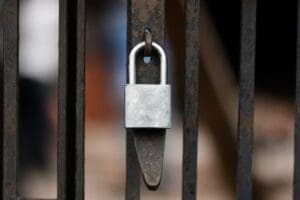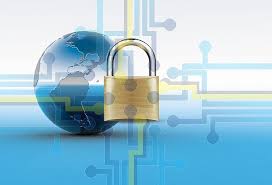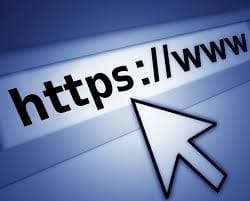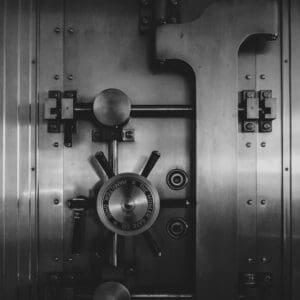
Tips for Keeping Your Website Secure

How to Keep Your Website Secure
 Visitors to your website are trusting you to keep their information safe. However, it’s been estimated that hackers attack a website every 39 seconds. So how do you avoid falling victim to hackers?
Visitors to your website are trusting you to keep their information safe. However, it’s been estimated that hackers attack a website every 39 seconds. So how do you avoid falling victim to hackers?
There are many steps you can take that begin back in the initial conversations with web design services. However, general upkeep and adherence to best practices can help keep your website safe and secure for visitors.
Here are some tips to keep hackers out of your information.
- Stay Current On Software Updates
- SSL Encryption
- Frequent Backups
- Use Strong Passwords
- Manually Accept Comments
- HTTPS
- Insist On Secure Hosting
Stay Current On Software Updates
 Websites often include a collection of various software and plug-ins to make all the great features work properly. This software is frequently updated to include new features and offer more capabilities. However, it can also be updated to fix any security flaws that might be exploited by hackers.
Websites often include a collection of various software and plug-ins to make all the great features work properly. This software is frequently updated to include new features and offer more capabilities. However, it can also be updated to fix any security flaws that might be exploited by hackers.
It is often as simple as clicking a singular button to update a piece of software. Web design services that use platforms such as WordPress often make use of these features and will give you alerts as to when a new update is available. Stay on top of this and reduce the opportunities for hackers to exploit vulnerabilities.
Learn more about web development services and security in Franklin, TN today!
SSL Encryption
 A lot of information can be passed back and forth when someone visits a website. Any form that is filled out and submitted, or any transaction that is completed, requires a level of trust that the information won’t be intercepted. This is where SSL encryption comes in.
A lot of information can be passed back and forth when someone visits a website. Any form that is filled out and submitted, or any transaction that is completed, requires a level of trust that the information won’t be intercepted. This is where SSL encryption comes in.
Your visitor’s browser sends information to your server when they submit a form. SSL encryption makes a secure connection between the browser and server to ensure the information is passed between them, and only between them. These connections don’t slow the website down so you can safely incorporate SSL encryption without worrying about degrading the user’s experience.
Frequent Backups
 Hopefully you won’t need to make use of any backups, but you’ll be very happy you did if it comes to that. Continually backup your website files in the unlikely case your website becomes unresponsive. There will probably be backups with your web host, but it’s best to manually backup these files on your own.
Hopefully you won’t need to make use of any backups, but you’ll be very happy you did if it comes to that. Continually backup your website files in the unlikely case your website becomes unresponsive. There will probably be backups with your web host, but it’s best to manually backup these files on your own.
These backups are a last resort should every other line of security fail. So hopefully you’ll never have to actually use your backups. But if you find yourself in a situation where your website is inaccessible and you don’t have backups, you’ll need to start from scratch.
Use Strong Passwords
 Passwords are the keys to the internet. And if you want your information and website to be secure, you need to continually use strong and varied passwords. This policy needs to apply to more than simply the password leading to the backend of the website. Your entire organization needs to use strong passwords so there are no vulnerable entrance points for hackers.
Passwords are the keys to the internet. And if you want your information and website to be secure, you need to continually use strong and varied passwords. This policy needs to apply to more than simply the password leading to the backend of the website. Your entire organization needs to use strong passwords so there are no vulnerable entrance points for hackers.
Sophisticated technology has been developed to crack passwords. You can protect yourself by utilizing these best practices:
- 10 character minimum
- Use both upper and lower case letters
- Include numbers and symbols
These factors will make your passwords strong, but they should still be updated whenever you suspect the presence of something abnormal such as malware or a notification of unauthorized access.
Manually Accept Comments
 There are an incredibly large number of bots that spam comment sections of various websites. These are usually quite easy to spot as they don’t generally reference the subject of the post on which they are commenting. However, they can include a link that might pose a security risk.
There are an incredibly large number of bots that spam comment sections of various websites. These are usually quite easy to spot as they don’t generally reference the subject of the post on which they are commenting. However, they can include a link that might pose a security risk.
These malicious comments can be weeded out by simply reviewing comments before they are posted. This can be set by your web design services company. This gives you the opportunity to approve or deny comments before they are made viewable to your guests.
HTTPS
 It can be easy to overlook the specifics in the address of your website, but they are important. The very beginning of your web address can have a large impact on the security of the information contained within. HTTPS guarantees secure communication between the user’s browser and the website’s server.
It can be easy to overlook the specifics in the address of your website, but they are important. The very beginning of your web address can have a large impact on the security of the information contained within. HTTPS guarantees secure communication between the user’s browser and the website’s server.
This not only makes the user, as well as the website, more secure, it is also rewarded by Google. Your website’s SEO performance can benefit from utilizing HTTPS. HTTP was the standard for a while but the secure version is essentially an upgrade.
Insist On Secure Hosting
 Be very careful when choosing a host for your website. The security practices employed by the web hosting company directly affect the overall security of your website and its contents. For instance, JLB not only provides web design services we also put a strong emphasis on the security of our websites. We provide multiple levels of security to keep your information safe.
Be very careful when choosing a host for your website. The security practices employed by the web hosting company directly affect the overall security of your website and its contents. For instance, JLB not only provides web design services we also put a strong emphasis on the security of our websites. We provide multiple levels of security to keep your information safe.
JLB provides engineering and technical support to ensure our clients are taken care of and don’t have to worry about the state of their website. We take pride in your security.
Contact JLB today!


Have A Project For Us?
Website design services & digital marketing tailored for user experience and
attracting the right traffic for you with support-that-matters!




